Blog
Washed vs natural coffee – Revealing the differences
When it comes to processed coffee, people are curious about the differences between washed vs natural coffee regarding nutritional contents as well as processing procedure. Washed vs natural coffee, in particular, have a lot of intriguing distinctions in terms of flavors.
See more:
- Semi washed coffee – Unique flavors from unique processing method
- Washed Arabica coffee – Things to know about Arabica coffee
Washed vs natural coffee differences
The origin of a coffee bean is not necessarily the most important aspect in determining the flavor and body of brewed coffee. However, aside from roast degree, there is a case to be made that no variable has a more constant and obvious influence on coffee flavor than the “process”, which simply refers to how the coffee bean is processed from the cherry.
Washed vs natural coffee definition
- Washed coffee
Washed coffee is the result of the washing procedure (also known as the wet or fully-wash method), which is the most frequent form of bean preparation used on coffee plantations across the world.
- Natural coffee
Natural coffee (sometimes known as unwashed coffee) is the product of coffee dry processing. It is the earliest processed product in history, and the dry process is still used in places like Ethiopia and Brazil where water is scarce.

Washed vs natural coffee processing procedure
The differences between washed vs natural coffee are noticeable but not everyone understands the essence well.
Washed processing procedure
Picking and harvesting coffee fruits is still required in the washed coffee processing method. However, when the coffee cherries are plucked, they are cleaned and dried.
- After being plucked, the coffee cherries are depulped to remove the coffee beans from the cherries’ outer peel. The mucilage from the interior of the fruit is still encircling the beans at this phase.
- Mucilage is a sweet, sticky covering that covers the whole bean. Both the beans and the gummy mucilage go through a fermentation procedure in which they are let to ferment in water for one to two days.
- Because the sugars in the mucilage are released during fermentation, it is considerably crucial to the process. This is part of what gives coffee its delightful flavor that keeps coffee lovers reaching for another cup day after day.
- The beans are washed after fermentation to remove the remaining mucilage then be allowed to dry. Washed vs natural coffee all go through a drying process. The beans are either dried in the sun or by mechanical equipment, depending on the farm and location.
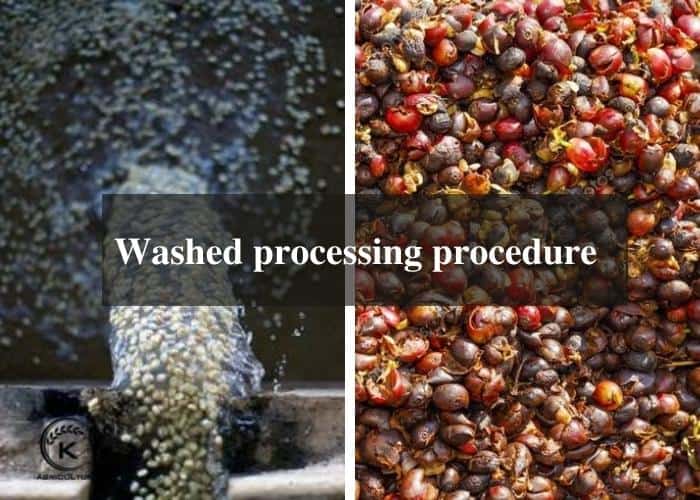
Natural processing procedure
When it comes to washed vs natural coffee, the coffee bean stays attached to the coffee cherry for longer during natural processing than it does during the washing process. This is due to the fact that the beans remain within the cherries during the natural process. Depending on the geography and environment, this might take anywhere from two to six weeks.
- Natural coffee cherries are stretched out in the sun as soon as they are picked. Coffee beans are often arranged on bricks or cement, and occasionally on elevated beds or tables. This is implemented to ensure that the cherries dry uniformly.
- The cherries are scraped and turned on a regular basis to limit the natural fermentation process and minimize the risk of spoiling in the sun. This might be a time-consuming and difficult operation, but it is necessary to avoid fermentation and mold growth.
- The outer peel and fruit of the cherries are removed once they are completely dried in order to extract the coffee beans inside. After that, the cherries are processed to remove any remaining fruit skin or husks.
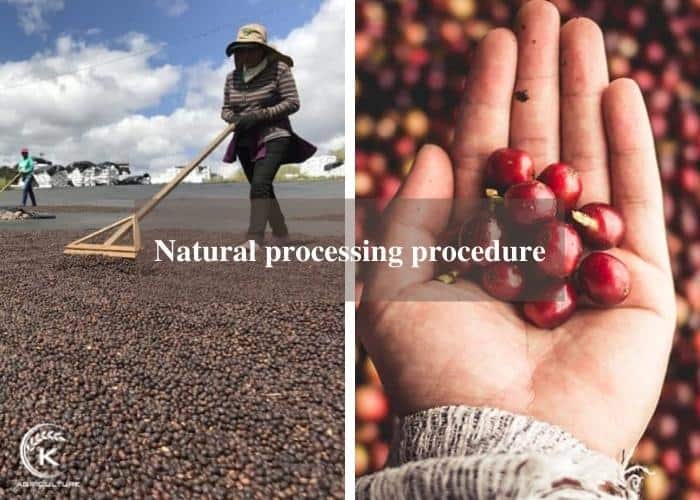
Washed vs natural coffee flavors
The flavor of washed vs natural coffee is vastly different. There are several factors that determine the flavor distinctions.
- Acidity
Acidity (also referred to as “brightness”) between washed vs natural coffee is generally higher in washed coffees. Their lighter and cleaner body results in a more uniform cup. Meanwhile, a bean that is allowed to interact in the sun with the surrounding fruit will absorb more of the fruit’s taste than a bean that is peeled of its surrounding cherry and mucilage right once.
- Sweetness
Dense and fruity sugars grow within the washed vs natural coffee seed during natural processing and manifest themselves when the coffee is roasted. Extra sugars generated within the coffee seed react effectively to roasting and caramelize in greater amounts than washed coffee. Natural coffee will taste like delicious, candied cherries without any flavors or syrups added.
- Body
Between washed vs natural coffee, the natural one is full-bodied and fruit-forward, with blueberry and strawberry tastes being the most frequent. To put it another way, washed coffees have more flavor from the cherry and plant from which it was produced, whereas natural coffees have more flavor from the cherry and plant from which it was cultivated.
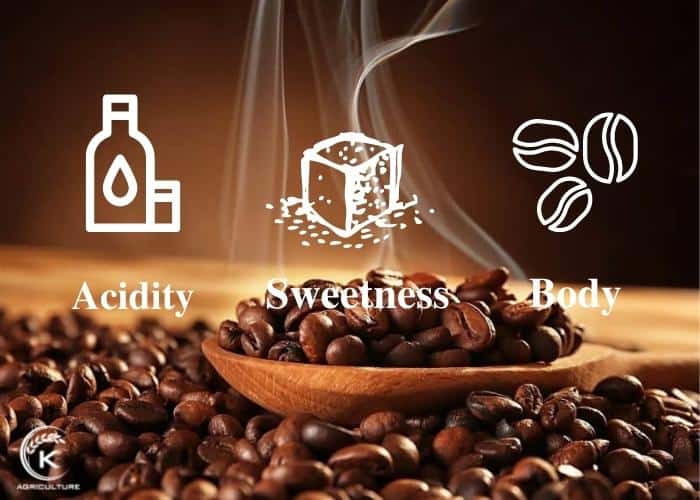
Pros and cons of washed vs natural coffee
Here is a quick comparison between washed vs natural coffee in terms of their pros and cons in the processing period.
| Washed coffee | Natural coffee | |
| Pros |
|
|
| Cons |
|
|
Washed vs natural coffee: which to choose
It is entirely up to the individual tastes and preferences of coffee lovers to decide whether to choose washed vs natural coffee beans. Many people argue over which is better: washed coffee or natural coffee. The answer to such a question will always be determined by their personal preferences.
- It costs more energy to process washed coffee beans, but processors have more control over the process, allowing them to generate more uniform tastes. Natural processed coffee or dry processed coffee, on the other hand, uses fewer resources to manufacture and has a more fermented and fruity flavor profile.
- The method of preparing and fermenting the coffee has a negligible effect on the caffeine concentration. The amount of caffeine in a coffee cup is determined by a number of factors, none of which have anything to do with whether the coffee is washed or natural coffee bean. The fundamental difference between washed and natural coffee is flavor, not strength.
- If coffee drinkers want a more acidic flavor with fruity undertones, washed coffee is the way to go. Natural coffee, on the other hand, is a better choice for those who want a fuller, heavier-bodied coffee made with more sustainable procedures. And, because the major way coffee affects the environment is through the bean production process, it may be advisable for coffee consumers to choose the more environmentally friendly one.

World prestigious washed vs natural coffee suppliers
The top 3 prestigious washed vs natural coffee suppliers in the world, which is voted by many coffee connoisseurs, are listed as follows.
Trung Nguyen Legend
With the mission of bringing Vietnamese coffee to the world, Chairman Dang Le Nguyen Vu dared to change the way coffee is grown and prepared to create excellent coffee beans.
Buon Ma Thuot coffee brand, famous for being the best Robusta coffee beans in the world, is one of the top five raw material regions that Trung Nguyen prioritizes to select to mix and create great energy coffee products. It contains the taste and culture of Vietnamese coffee for coffee lovers and enthusiasts around the world.

The coffee taste of Trung Nguyen is the result of a dedicated Vietnamese coffee production process, daring to change, and many aspirations. The coffee production process is rigorous and selective to bring the quintessential Vietnamese drink.
K-Agriculture Factory
Established in 1996 by a founder with deep experience in trading Vietnamese agricultural products, Mr.Daniel. K-Agriculture has been well-known as a Vietnamese leading and most prominent manufacturer, exporter, and distributor of coffee. K- agriculture is the leading wholesale company in Vietnam which is powered by the Vietnam Ministry of Industry and Trade.
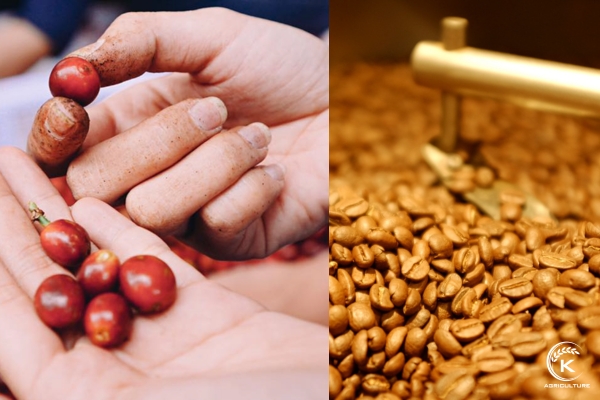
The company has direct connections with major coffee producers in Lang Son, Lam Dong, Vietnam that will be responsible for distributing Vietnamese coffee, ensuring the Vietnamese coffee production standards of Vietnam and the world. The company mainly provides processed raw coffee beans, committed to typical Arabica beans, the taste quality of the highland country as well as pure Robusta with reasonable prices. Buyers can trade easily because of Direct wholesale company, Best Price, High Quality, Attentive customer care, Assurance & Exchange policy, Easy to buy Online.
Contact information
Email: info@k-agriculture.com
Website: https://k-agriculture.com/
WhatsApp: +84 855555837
Intimex Group
Intimex Group is a prominent Vietnamese company with a strong presence in agricultural exports, especially coffee beans. Founded in 1995, the group has grown to become one of the largest coffee exporters in Vietnam and has expanded its operations across various agricultural and food sectors.
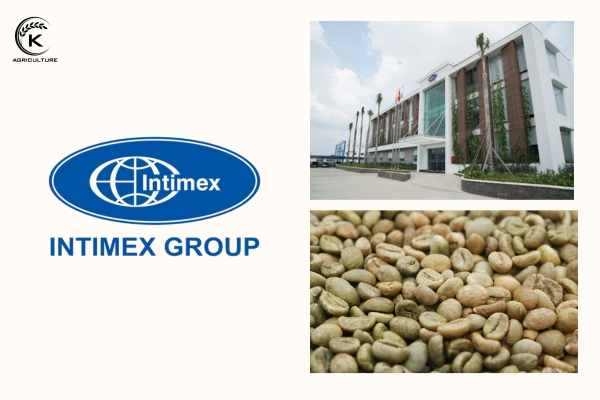
Intimex Group’s primary focus is on coffee, particularly Robusta beans, which are widely grown in Vietnam. In addition to coffee, the group is involved in processing and exporting other agricultural products, such as pepper, cashews, rice, and tapioca starch. Their extensive portfolio supports Vietnam’s role as a major player in the global agricultural export market.
Intimex Group’s success in coffee exports is due to its comprehensive approach, which includes cultivation, processing, quality control, and logistics. The company works closely with local farmers and co-operatives to ensure a steady supply of high-quality coffee beans. By investing in advanced processing facilities and maintaining strict quality standards, Intimex Group has earned certifications such as HACCP and ISO, which are essential for meeting international standards.
Contact information
WhatsApp: +84 855555837
